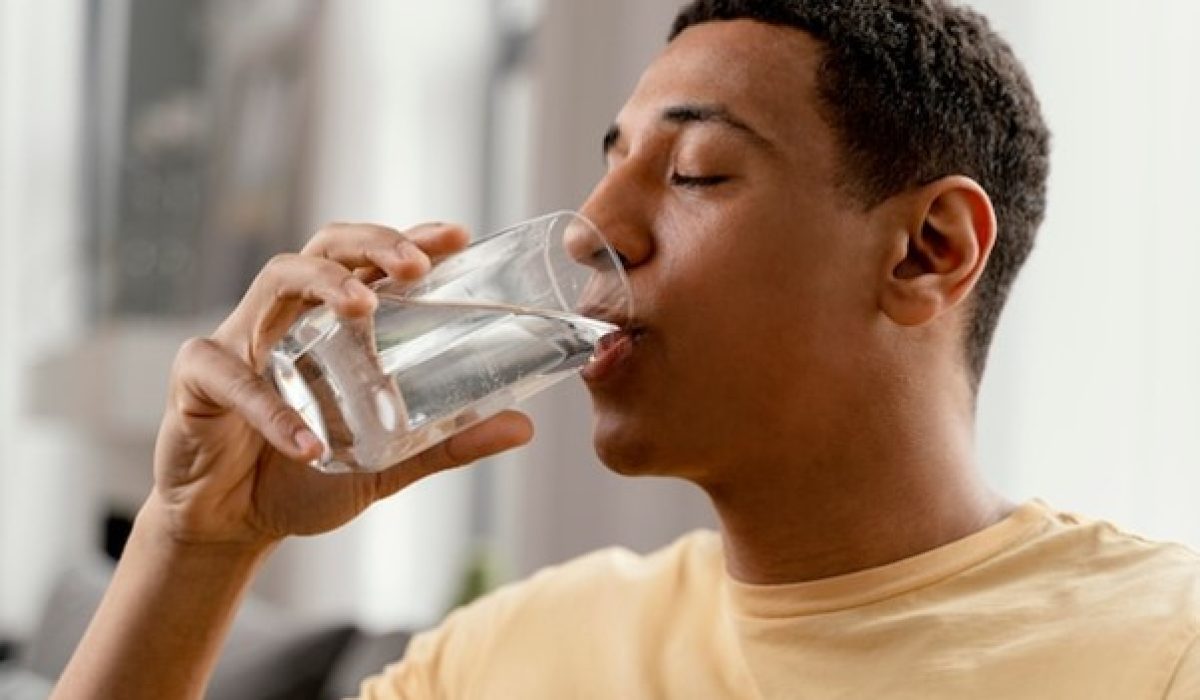Dehydration occurs when your body loses more fluids than you drink, making it difficult to carry out its normal functions. Anyone can become dehydrated, but it is dangerous for young children and older adults.
The best way to surpass dehydration is to drink before you become thirsty.
How Does Dehydration Develop?
You can become dehydrated because of the following:
- Excessive Sweating
- Vomiting
- Diarrhea
- Fever
- Frequent urination, which can happen because of certain medicines and illnesses
- Not drinking enough
What Does Dehydration Feel Like?
Dehydration can be mild or severe. Mild dehydration can be treated at home.
Symptoms include:
- Dry Mouth
- Fatigue
- Headache
- Dizziness
- Increased Thirst
- Decreased Urination
- Dry Skin
- Constipation
In addition to these symptoms, severe dehydration is likely to cause:
- Excessive Thirst
- Lack Of Sweat Production
- Rapid Breathing
- Rapid Heart Rate
- Low Blood Pressure
- Sunken Eyes
- Dark Urine
Severe dehydration is a medical emergency and get medical help right away if you experience any of these symptoms.
Who Is at Risk of Becoming Dehydrated?
Certain people have a substantial risk of dehydration than others, including:
- Older Adults
- Infants And Young Children
- People Who Are Exposed to Heat
- People With Chronic Conditions Causing Them to Urinate or Sweat More Often, Such as Diabetes or Kidney Problems
- Athletes (Especially Runners, Cyclists, And Soccer Players)
- People Who Stay at High Altitudes
How Is Dehydration Diagnosed?
To make a diagnosis, your physician will:
- Do A Physical Exam
- Ask About Your Symptoms
- Monitor Your Vitals, Including Blood Pressure and Heart Rate. Low Blood Pressure and Rapid Heart Rate Can Indicate Dehydration
- Blood Tests Check Your Electrolyte Levels, Especially Potassium and Sodium
- Blood Tests to Check Your Kidney Function
- Urine Analysis to Inspect for The Presence of Infection And the Cause for Dehydration
What Are the Strategies to Treat Dehydration?
- The treatment for dehydration includes rehydrating methods, electrolyte replacement, and treating diarrhea or vomiting if needed.
- In case of mild dehydration, it should be just enough to drink plenty of fluids or juices or oral rehydration solutions.
- You can also make a rehydration solution at home using six teaspoons of sugar and 1/2 teaspoon salt in a liter of water. Be certain about quantities, as using too much salt or sugar can be dangerous.
- Severe cases can be treated with intravenous (IV) fluids, often a mix of water and electrolytes, in a hospital.
Can Dehydration Be Prevented?
The key to preventing dehydration is making sure that you get enough fluids:
- Drink enough water every day, however each person’s needs can differ
- If you are exercising in the heat and losing a lot of minerals in sweat, sports drinks can be helpful
- Avoid drinks that have sugar and caffeine
- Drink extra fluids when the weather is hot or when you are sick
What Are the Complications of Untreated Dehydration?
Dehydration, if left untreated, can lead to life-threatening complications, such as:
- Heat stroke
- Heat Cramps
- Seizures Due to Electrolyte Loss
- Low Blood Volume
- Kidney Failure
- Coma


